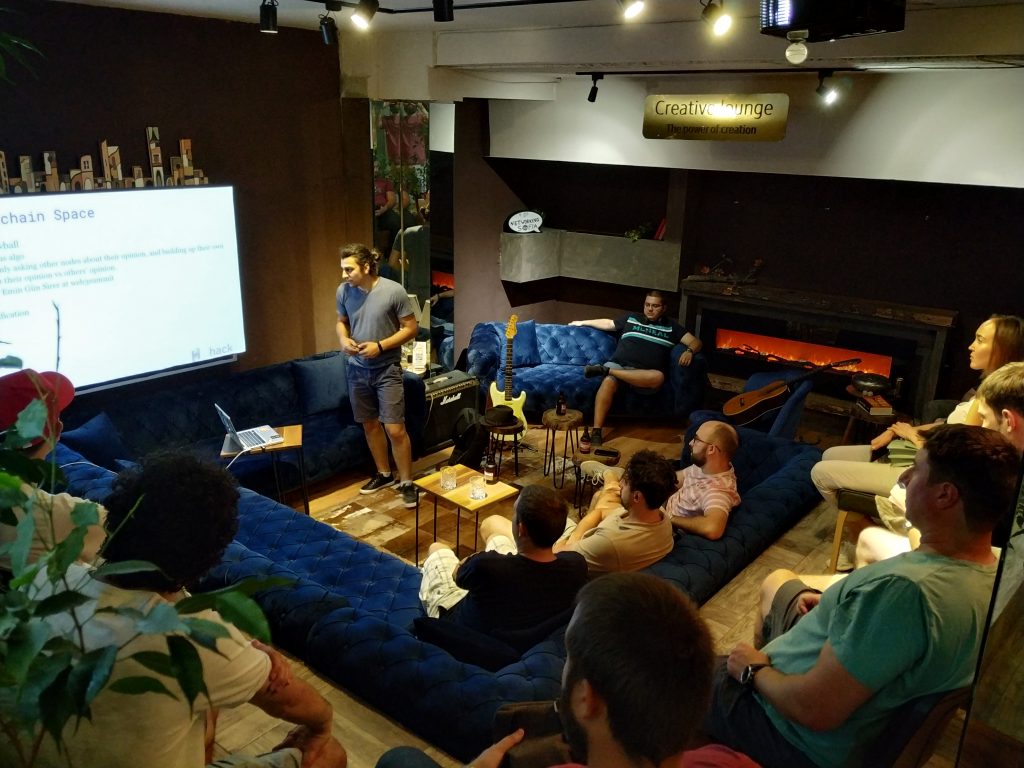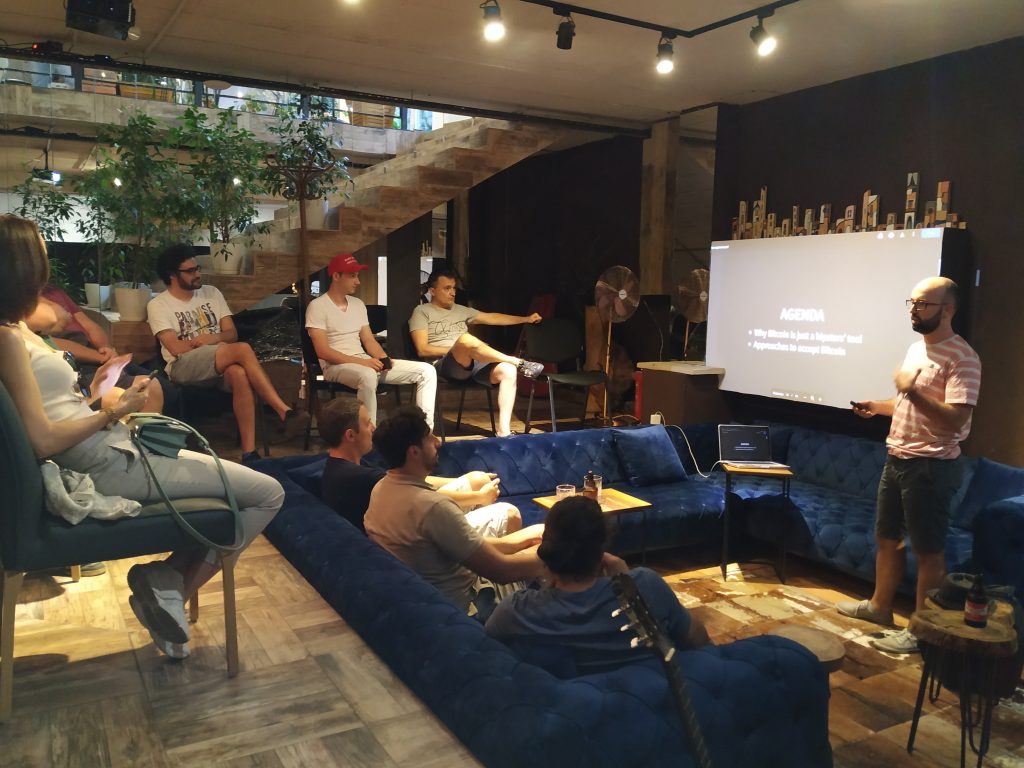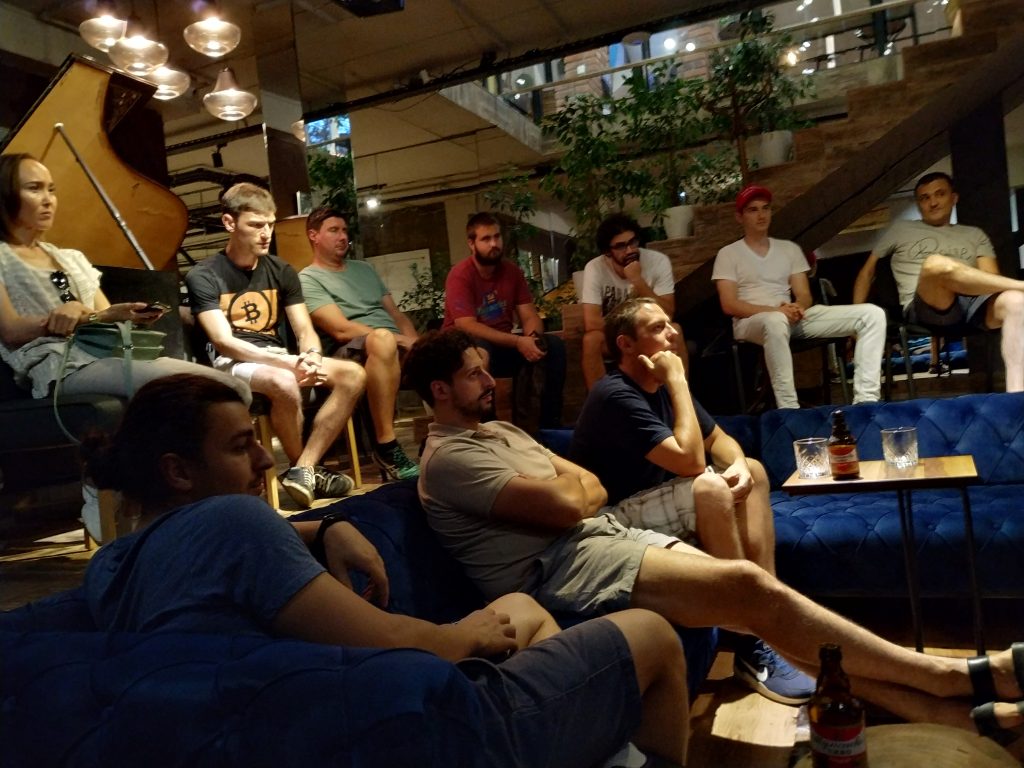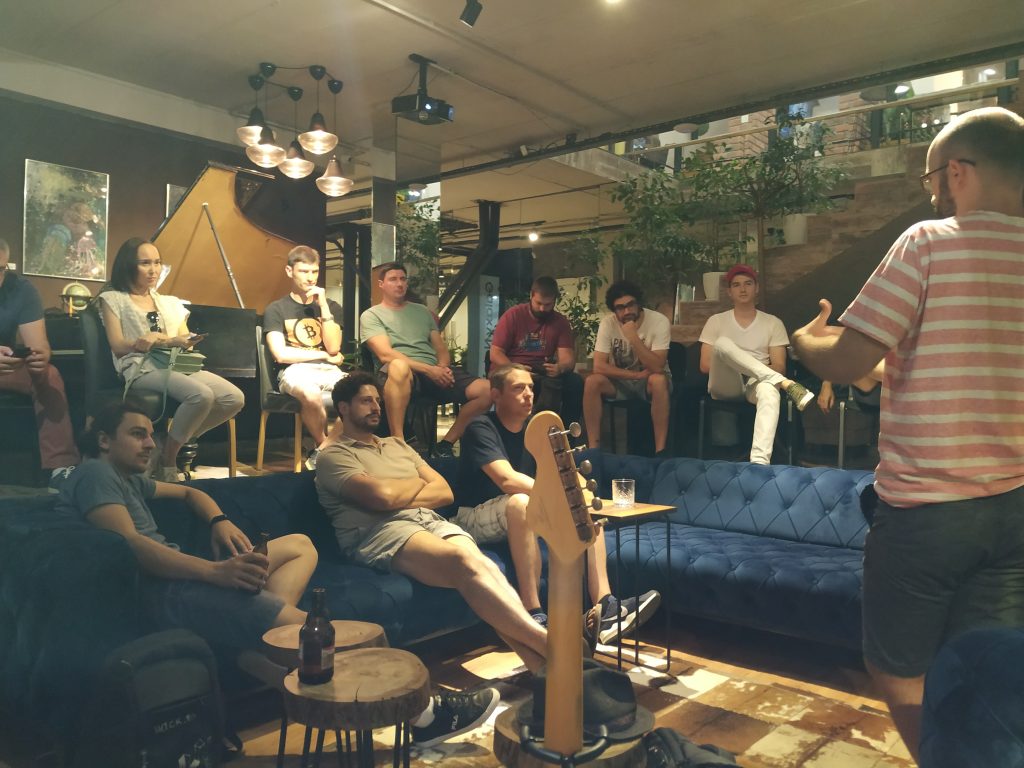Our blockchain developers meetup went as usual on the last Thursday of the month. Feel free to stop by next time if you are a world traveler, freelance developer interested in blockchain and willing to share our passion. You would easily find us in our event partner’s location, Premium Coworking Space Sofia.
After 12 consecutive meetups and an awesome birthday party, we are continuing our blockchain dev community meetup, this time with Rali Ralev from WeiDex to deliver another interesting and informative talk. Despite the good weather and the summer vibes here in Sofia we gathered a decent amount of blockchain enthusiast, some old but also many new faces.
Just before Rali’s talk, Milen gave us a short update on the things he as done/seen on the recent blockchain events in Berlin. Along with the usual dev update that we care to provide for the convenience of the community.

Interesting news in the blockchain space among others was the announcement of the Avalanche’s Snowball consensus algorithm, proposed by Emin Gün Sirer at web3summit. The novelty is the way the consensus is done. The nodes are randomly asking other nodes about their opinion, and building up their own confidence in their opinion vs other’s opinion.
Statebox is building a formally verified process language using robust mathematical principles to prevent errors, allow compositionality and ensure termination. In addition, the language is visual and allows one to inspect the flow of the program as it is executing. These properties make Statebox suitable for distributed systems, blockchains, workflow management systems, application orchestration, and system architecture.
In the Ethereum dev space we have seen:
- Synthetix released a new category of Synths this week – Index Tokens. These tokens track an index of centralized exchanges tokens. The long version is called sCEX and the short version is called iCEX.
- AZTEC announced PLONK – a new, efficient universal ZK-SNARK construction that only requires one trusted setup.
- Prysmatic eth2 client update – swappable database back-end, now running disc v5
- Bringing privacy to NFTs using ZoKrates
- Circom snarks compiler ported to Rust
There was also news about the recent development in AEternity including:
- waellet – released new v0.1.1 version beta
- Aepp-SDK-JS – new version v4.6.0
- ForgAE become Aeproject
After the blockchain news, Rali got on stage to deliver his talk. His aim was to answer a bunch of important questions that we developers have to consider before getting started with the implementation of an actual solution.

Bitcoin is the King of crypto. But is Bitcoin really suitable for accepting payments? What is the best way to do it? What are the challenges? Those are a few of the questions that Rali was answering during his presentation. For those of you who missed we are going to answer them one by one here.
Before diving into more details, Rali sent some chills in the public by sharing his view that Bitcoin is just a Hipster’s tool for payments :). Some of the arguments where that currently Bitcoin has been mostly used for speculation and rarely to buy stuff. One of the reasons might be that most retailers are having bad rates when accepting Bitcoin. For example, a product purchased in BTC could cost 20% higher if purchased in USD. Another cornerstone of the problem could be the transaction time. Rali also claimed that there are probably more pictures of the famous “Accepting Bitcoin” sticker circulating on the Internet than actual transactions on the bitcoin network.

Regardless of what has been said, Bitcoin is still used by some retailers to accept payments. Rali’s work experience led him to implement solutions in a different way.
The first solution would be to use a third party service. According to Rali it is relatively easy to integrate a solution that is providing an easy way to convert BTC to your local currency. The convenience is that you don’t have to care about confirmation time and you don’t have to manage a wallet.
The drawbacks are the high fees, the lack of control over your funds and the fact that you can be tracked. Additionally, if you are a service requiring multiple simultaneous transactions, you can easily hit the Gap limit.
This solution could be ideal for small businesses with low transaction volume and low technical teams willing to accept Bitcoin.
The second solution discussed by Rali was the use of pre-generated addresses. The advantage is the user is keeping control over his public and private keys. However the use of many addresses can slow down the wallet’s operations. According to our speaker, this solution is ideal for fast prototyping and for exchanges.

The third and last option will be to generate addresses on-demand, notably the most recommended and scalable solution to use if you are tech-savvy.
To conclude his talk Rali have to the public his recommendation on wallets and resources, mentioning about Bitcoin core wallet, Electrum daemon and Mastering Bitcoin, the book of Andreas Antonopoulos. Tools that can help you to develop your solution to accept Bitcoin.
Audio and screen recording coming soon!
Join our meetup group to stay tuned for our next event!
![Cover Image for 0x0d. Accepting Bitcoin – the right way [Blockchain Dev Meetup]](/_next/image?url=https%3A%2F%2Fwp.web.hack.bg%2Fwp-content%2Fuploads%2F2019%2F08%2FIMG_20190829_202143-e1567177584386.jpg&w=3840&q=75)


